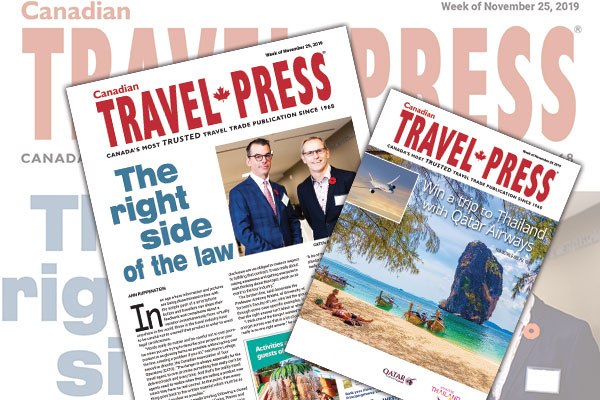The Right Side Of The Law

In an age where information and pictures are being disseminated online with the simple push of a smartphone button and travellers can share their feedback and complaints about a vacation instantaneously from virtually anywhere in the world, those in the travel industry have to be careful not to oversell their product in order to avoid legal ramifications.
“Words really do matter and be careful not to over promise when you are trying to describe your property or your product in as glowing terms as possible without going over the line, creating a problem if you do,” said Pierre LePage, executive director, the Canadian Association of Tour Operators (CATO). “The danger is always, especially for the travel agent, to over promise something that really can’t be delivered each and every time. And that’s the reality travel agents need to realize when they are selling a product over which they have no real control. At that point then everything goes back to the written material which must be as simple and as clear as possible.”
Speaking at a recent media briefing following a closed session for CATO members entitled Trains, Planes and Contracts: Legal Issues in the Travel Industry put on in conjunction with the University of Toronto’s Law Faculty, LePage said the session focused on the legal implications surrounding disclosure.
“I think the purpose of the session was to bring a thought provoking and educational symposium for our CATO members on contract laws, the contracts between tour operator and their clients, and then the whole idea of disclosure,” added CATO Chair Tim Croyle. “What sort of disclosure are we obliged to make in respect to fulfilling that contract. It was really about raising awareness and getting everyone to start thinking about this topic, which is relevant to the tour industry.”
The bottom line, said Associate Professor Anthony Niblett, of University of Toronto’s Faculty of Law, who led the group through some case specific examples, is that the right answer isn’t black or white.
“I think one of the things I wanted to try and get across was that in a lot of cases there really is no one right answer,” he continued. “A lot of the law is quite vague and based on standards around what is reasonable and it’s really very heavily fact specific.”
For the full story, check out this week’s digital edition of Canadian Travel Press.


